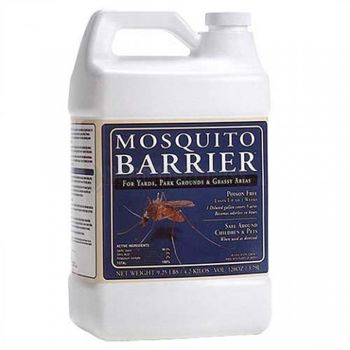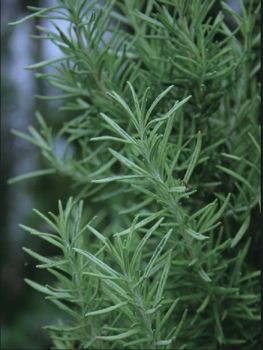
Lin Ellis launched Eco Friends Pest Control after 20 years of working in veternairy clinics, where she saw the harmful effects of pesticides on pets.
Oct. 7, 2015
Lin Ellis will tell you her company’s eco-friendly approach to pest control is good for people and the environment. But when she launched Eco Friends Pest Control in 2009 with her husband Mick Ellis, she was motivated by her lifelong love for animals.
As a child, Ellis helped out the family vet who treated her dogs and horses. Later as an adult, she worked as a vet tech and receptionist for animal veterinary clinics for nearly 20 years.
That’s where she saw animals who had been exposed to pesticides, herbicide and rodenticides over and over again, both in rural areas as well as a prominent neighborhood in Dallas. While most of the animals survived, some did not.
 “Animals don’t wear shoes and lay on the floor and in the yard. Their exposure is greater than ours. It is horrific to see the seizures, bleeding, neurological issues and uncontrollable body functions,” Ellis said. “Their exposure was after the [pest] treatments were done. It was never directly applied on them. After all these years of seeing this, it is always on my mind. What is it doing to us, if this is happening to our pets?”
“Animals don’t wear shoes and lay on the floor and in the yard. Their exposure is greater than ours. It is horrific to see the seizures, bleeding, neurological issues and uncontrollable body functions,” Ellis said. “Their exposure was after the [pest] treatments were done. It was never directly applied on them. After all these years of seeing this, it is always on my mind. What is it doing to us, if this is happening to our pets?”
Those experiences spurred her to make a career change.
“The day finally came that I felt the need to do something,” she said. “ I wanted to keep helping the animals that I loved so much. I had heard of eco-friendly pest control.”
Image courtesy of Dogs-Wallpapers.com
At first, she went to work for a pest control company that claimed to be eco-friendly.
“I personally had recommended this company to all of our [vet] clients because I believed it was chemical free and better for the animals as well as us. I found out I was wrong about my interpretation of eco-friendly.”
She went to a second company and discovered the same thing.
“Apparently all pest control companies can say they are eco-friendly and it is perfectly legal. What it means in my industry is they are using the lowest mixture of whatever product, be it chemical or botanical. At this point, I was very disillusioned.”
While in the industry, she met an entomologist named Dr. Ray Thompson. He led her to what she says are the real eco-friendly pest controls products.
“I called him and asked him if there was even such a thing as chemical-free pest control and he said ‘yes.’ We set up a meeting and it was the beginning of our wonderful journey into pest control.”
With his help, she and her husband started Eco Friends Pest Control.
“He told me everything he knew about non-chemical pest control. He guided us on what products to buy and why, how to apply and why. We wouldn't exist today if it hadn't been for him. He is our staff entomologist.”
 Eco Friends Pest Control is also RIS Certified, meaning Reduced Impact Services, by the Texas Department of Agriculture.
Eco Friends Pest Control is also RIS Certified, meaning Reduced Impact Services, by the Texas Department of Agriculture.
“This certification means my training has extended beyond traditional pest control to help clients not need pest control as often or not at all. Our goal is to educate people, let them know that botanicals exist and they have a choice in pest control.”
She said that while legally, she cannot use the terms organic, natural or safe, she said the products she uses are biodegradable.
One of Ellis' favorite products, Mosquito Barrier, is made primarily from garlic juice.
“The products I use will break down and compost back into the Earth, just like the plant they come from. At the highest mixture of botanical products, they are lower in toxicity than the lowest mixture in chemicals. But I am very careful what lines I use because there are a lot of chemicals out there that are botanically scented and represented as botanical.”
Eco Smart is her main line of products, made from the oil of plants. As a result, the Texas Department of Agriculture allows her to use the term “botanical.”
“Processed for human consumption, they are the herbs and spices we use to prepare our food,” she said. “In other words we have been eating them all of our lives. Cloves, rosemary, mint, garlic and thyme are a few. Botanical products were used before WWII. DDT was introduced in WWII and that was the beginning of the chemical era.”
As for whether these products are cruelty free, Ellis said she cannot say.
“I am not part of the process of creating these products so I don’t know if they are tested on animals or not. If they are, once again, they are botanically based. Some of the products I use can be applied to animals to control pests. They are used on livestock that is marketed as organic meat. Those are the Eco Smart products, which I have built my company on.”
She confirmed, these products do kill bugs, but not the good bugs, fortunately.
“Over time it will build up an environment that will also help to deter the bad bugs,” she said. “No one can tell you how big the bug population is so this may take time. Over the years, I have learned a lot just by observation and can determine where, what and how much to use. I have yet to find any target pest they do not kill.”
And for the good bugs?
“These bugs will come where there are no chemicals. If chemicals are used, beneficial bugs will die or leave the area. Their presence helps to keep the bad bug population down,” Ellis said. “I treat my yard and have dragon flies, lady bugs, praying mantis and lizards and I live in the city. I did not have them before. They all came on their own, I didn’t import them in.”
Ellis estimated that 80 percent of people who need pest control do not use it because they don’t want to be locked into a contract or have chemicals in their homes or businesses.
“That is my target client,” Ellis said.
DETER BUGS WITHOUT PEST CONTROL
Courtesy of Eco Friends Pest Control
• Keep your yard tidy. Trim bushes six inches off the ground and 12 inches off of the house. Rake leaves and trim trees off your house at least three feet.
 • Remove standing water. It is a breeding ground for mosquitoes and a water hole for other pest including rats/mice.
• Remove standing water. It is a breeding ground for mosquitoes and a water hole for other pest including rats/mice.
• Clean your gutters. Mosquitoes, ants and roaches love leaves in gutters.
• Remove wood, bricks and junk. It will quickly become a major metropolis for many pests, including rats/mice.
• Remove stumps and don’t keep wood piles by your house or old wood. It attracts termites.
• Plant herb plants. Rosemary, thyme, lavender, garlic, basil, sage, geraniums, lemon grass and mint (Always in a pot. Mint is very invasive).
Image courtesy of HerbSociety.org.
• Steel wool, foam and caulk are your best friends. Walk around your home and look for openings. Use the clear caulk. It will look better. Stuff steel wool into weep holes on your house and use foam for the bigger openings.
• Go inside your home and do the same thing. Look at pipes under your sinks. That ring around the pipe is for decoration, not to seal it. Seal for wires coming into your home. Caulk around the inside of your windows.
• Put everything in your pantry that is not canned, in glass or heavy plastic containers into plastic bins with air tight lids.
• No dirty dishes, laundry or bathrooms. Ants and roaches love toothpaste, shampoos soaps, body washes etc.
Sign up for the weekly Green Source DFW Newsletter to stay up to date on everything green in North Texas, the latest news and events. Follow us on Facebook, Twitter and Pinterest.









